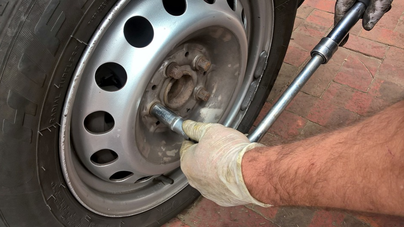Tire Service: The Effect of Climate Problems
When it concerns making sure optimum performance and safety and security when traveling, comprehending the influence of weather on tire service is essential. From scorching warm to icy roadways, each weather condition element can considerably influence tire capability and general driving experience. By delving right into the effects of varying weather on tires, drivers can acquire valuable understandings that may boost their automobile's performance and longevity. In this discussion, we will certainly check out the elaborate partnership in between weather and tire service, losing light on the value of weather-specific tire upkeep practices and considerations.
Heat and Tire Performance
When exposed to high temperature levels, tires experience modifications in performance that can substantially impact automobile safety and handling. The warm generated from extended driving or warm weather problems causes the tire rubber to soften, causing decreased step life and boosted wear. As the rubber comes to be softer, the tire's grasp on the roadway lessens, influencing braking distances and overall grip. In extreme cases, excessive warm can even cause tire blowouts, posing a severe safety and security threat to the automobile and its passengers.

Winter Impacts
Cold weather condition problems can have a substantial effect on tire performance and safety and security. As temperature levels decline, tire rubber can harden, bring about reduced traction on icy or snow-covered roadways. In winter, tires may additionally shed air stress more quickly, which can affect dealing with and gas performance. Additionally, cold temperature levels can trigger tire sidewalls to stiffen, enhancing the threat of damages from pockets or various other roadway dangers.
To minimize the effects of winter on tires, it is essential to routinely examine tire pressure and inflate them to the manufacturer's advised degrees. Making use of wintertime or all-season tires made for chilly weather problems can likewise improve traction and grasp on icy or snowy roads. Correct tire upkeep, including normal inspections for wear and damage, ends up being much more vital during chillier months to ensure optimum efficiency and security.
Rainy Conditions Impact
During rainy conditions, tire performance and safety can be significantly influenced by the damp roadway surface areas and lowered exposure. The step pattern of tires plays a vital role in maintaining grip on wet roads. Tires with worn-out footsteps are a lot more susceptible to hydroplaning, where a layer of water accumulates in between the road and the tire surface, bring about loss of traction. To combat this, drivers need to regularly evaluate their tires for ample tread depth and consider buying tires specifically made for damp conditions.
In addition, stormy weather condition can also lower presence, making it challenging for drivers to see the roadway ahead plainly (GMC Tire Service). In such conditions, it is important to adjust driving speeds accordingly and keep a secure following range to enable for sudden quits. Effectively inflated tires can likewise assist in maintaining control on damp roadways by providing far better handling and hold
Snow and Tire Safety And Security
Snow-covered roadways pose unique difficulties for motorists, stressing the significance of proper tire choice and upkeep. When driving in snowy conditions, having the appropriate tires can make a considerable distinction in safety and performance. Winter tires are created with unique rubber compounds and tread patterns to give much better traction on snow and ice compared to all-season tires. The deeper footsteps and sipes of winter season tires help grip the road much better, minimizing the danger of sliding and slipping.

It is important to comply with manufacturer directions when making use of and mounting tire chains to avoid damage to the tires and automobile. By picking the ideal tires, preserving appropriate inflation, and considering extra grip help like tire chains, chauffeurs can improve their safety and security when navigating snow-covered roadways.
Weather-Related Tire Maintenance
When confronted with numerous weather, appropriate tire maintenance comes read what he said to be an important element of lorry safety and security and performance. Weather-related tire upkeep incorporates a variety of techniques targeted at guaranteeing ideal tire function and long life in various weather condition scenarios. One essential aspect of weather-related tire upkeep is tire stress regulation. Rising and fall temperatures can create tire pressure to differ, influencing traction and gas performance. Routinely adjusting and examining tire stress according to producer suggestions is necessary for secure driving in altering climate condition. Additionally, tire walk depth plays a substantial duty in handling various weather condition aspects. Tires with ample step deepness provide much better hold on wet or icy roadways, reducing the threat of skidding or hydroplaning. Inspecting tire tread frequently and changing tires when walk wear gets to a certain deepness is vital for maintaining grip and security in damaging climate. By prioritizing weather-related tire maintenance, chauffeurs can boost safety, improve lorry efficiency, and lengthen the life expectancy of their tires.
Final Thought
In conclusion, climate conditions have a substantial impact on tire efficiency and safety. From warmth influencing tire stress and use to cold climate decreasing traction, it is important to think about the weather condition when preserving and utilizing tires.
In this discussion, we will check out the detailed connection in between weather conditions and tire service, shedding light on the value of weather-specific tire upkeep practices and considerations.
